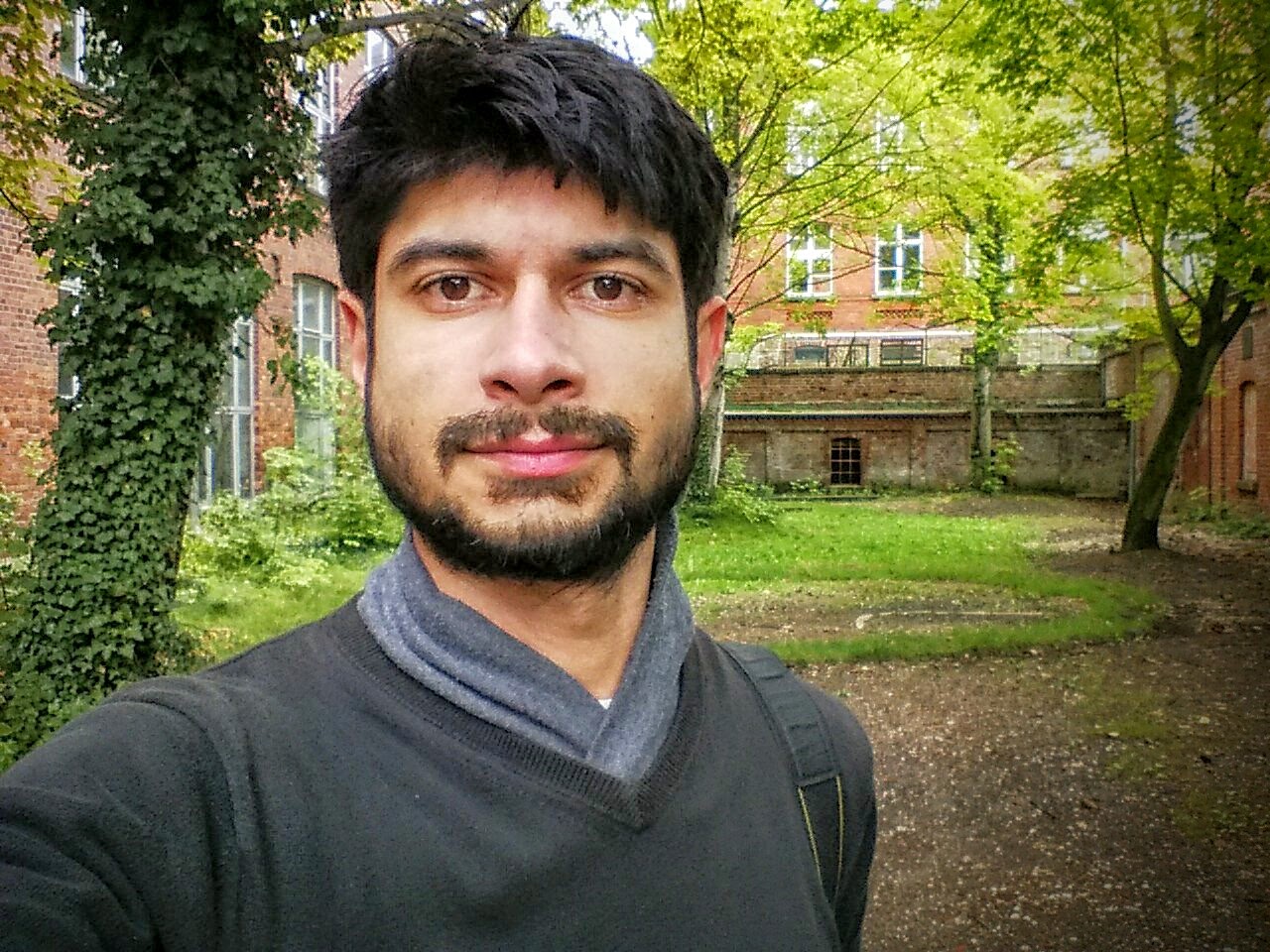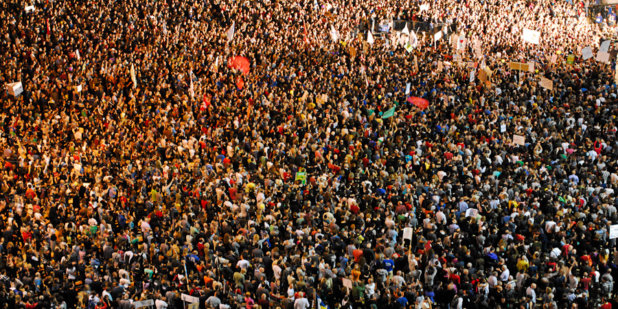- About
- Topics
- Picks
- Audio
- Story
- In-Depth
- Opinion
- News
- Donate
-
Signup for our newsletterOur Editors' Best Picks.Send
Read, Debate: Engage.
"I suddenly realized that it wasn't just me who was failing, other people did too."
Ilian Marshak was not coming from a seemingly safe and settled down place, but from the other side of the social strata, from the bottom, from a life of temp jobs and basic survival, when inspired by the tent-revolution he found for the first time a clear path and a calling.
"I was working in all those jobs showing up in the classified section as temp jobs: I was selling paintings abroad, working at a call center, at a paint factory, gas stations, with livestock, at chicken factories. I was working as a security guard, I was also securing politicians and all kinds of celebrities, lawyers whose houses I was babysitting for hours on end."
"When the protest started, I stopped going to all those jobs. I felt that the protest was more important than anything else, and that we were changing reality."
"Before the protest, I was this sort of this right-wing person coming from the periphery, growing up in boarding schools, I used to be that person who, instead of taking out his rage against the government, was taking it out on the Arab cleaning the apartment building, for instance. It wasn't until 2011 that I realized that it wasn't just me who was failing, that other people were also struggling financially. I started feeling that I had more potential than that, that I was talented, and that my time was worth more than 20 Shekel and hour."

Ilian Marshak. "When the protest started, I stopped going to all those temp jobs I had. I felt that the protest was more important than anything else and that we were changing reality."
At the early stages of the protest, 31 year-old Marshek became the protest's TV channel: he was broadcasting the demonstrations and voices from the boulevard live from his cellphone on his Facebook page, while calling out protest slogans and even confronting police officers. The shots were accompanied by captions of his interpretations, demonstrating virtuosic verbal skills, a lot of pathos that resembles that of good old radio broadcasters, spiced up with graphic imagery and juicy curse words. From a life of feeling like a failure, between temp jobs, Marshak became one of the voices most identified with the protest, and a prominent internet figure.
And then the demonstrations were over, the Rothschild tent city was evacuated, and Marshak turned to the homeless people's tent city near the Tel Aviv Center railway station. "I became friends with the homeless people I had met in Rothschild, and I felt like I had to help them. I posted on Facebook that I needed help setting up tents in Arlosoroff, and Gal Levin, who specializes in cheap accommodation solutions, came from up north. He taught me how to make geodesic domes, and I started building that kind of accommodation for the homeless people."
Nowadays, his activism has mostly narrowed down to broadcasting various protest related events. He's living in Tel Aviv, "working in all kinds of jobs that have to do with carpentry and drone video photography. I've recently discovered carpentry: I'm building furniture from used wood, and hope to start getting orders from people following my Facebook page, but I basically plan to continue going in the same path I started with, which is broadcasting demonstrations and protest related events".
In any case, his plan is to stay off the grid. "The protest has really changed my life. Today, I don't have a bank account, and I'm not paying social security because I've accumulated 90K NIS debts. People following me on Facebook, who had heard about my debts, helped me pay them back, but I still won't open a bank account of pay social security".
